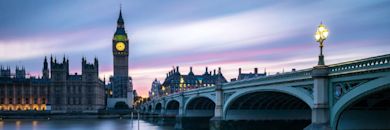- News and articles
- Events
- Find usIDP AustraliaIDP BahrainIDP BangladeshIDP CambodiaIDP CanadaIDP ChinaIDP EgyptIDP GhanaIDP Hong KongIDP IndiaIDP IndonesiaIDP IranIDP JordanIDP KenyaIDP KoreaIDP KuwaitIDP LebanonIDP MalaysiaIDP MauritiusIDP Middle EastIDP NepalIDP New ZealandIDP NigeriaIDP OmanIDP PakistanIDP Saudi ArabiaIDP SingaporeIDP Sri LankaIDP Taiwan, ChinaIDP ThailandIDP TurkeyIDP UAEIDP VietnamIDP Corporate
- Social
- English
Topics covered
- Published: 11 May 2024
If you’re about to embark on your study trip to the UK, you’ve probably done research on things to do, places to visit and accommodation options, among other essentials.
However, do you know any of the emergency numbers in the UK?
While it might seem unlikely that you’ll have to call any of these hotlines during your trip, you can never know for sure. After all, there could be circumstances when the unexpected occurs.
In the event an emergency arises, you’d want to be prepared so as to get the necessary help and support you require.
Not sure where to begin? Fret not, our guide explores a list of different scenarios and the key emergency details you’d need for each of them.
6 Scenarios When Studying In The UK To Be Prepared For (And The Hotlines)
1. Encountering A Robbery, Burglary Or Crime
The UK police has a range of responsibilities such as dealing with crime, community support and policing large-scale events.
However, you should only reach out to the police at 999 if there’s a genuine emergency. For example, if someone is in immediate danger, the situation could potentially escalate and get violent or if support is needed right away.
In the event you face a robbery, burglary or crime, take a moment to evaluate the severity before making the call.
If it is a more minor issue or crime such as stolen items, property damage or local drug use, you should call the non-emergency hotline 101 or make an online report. Alternatively, you can call or visit your local police station.
2. Witnessing Or Encountering A Fire
If you see or encounter a fire immediately call 999 to reach the London Fire Brigade.
Even if it appears to be a small fire and you aren’t sure if it is an emergency, you should still call 999 to get the fire put out.
Once you reach the fire brigade, your call will be directed to the fire control room and you’ll be required to answer several questions, including the postal code of the location affected by the fire. In the event you don’t have the postal code, you can provide the street name or a local landmark.
They’ll then dispatch the nearest fire engine with the necessary equipment, with the aim of arriving within 6 minutes.
3. Having A Traffic Accident (Roadside Assistance)
Dealing with a vehicle breakdown can be not only anxiety-inducing but also dangerous if you’re on the motorway.
In the event this happens to you, the first thing to do is to put on your hazard lights and ensure you’re in a safe place. This can be done by moving your vehicle off the road if possible or moving to the road shoulder, stopping as far left as you can with wheels turned to the left.
After which, call the AA at 03330 046 046 for roadside assistance.
4. Medical Emergency
In the event of a life-threatening medical emergency, call 999 for an ambulance.
While it could be alarming to deal with such a situation, it helps to remain calm and make the call as soon as you can to get help.
After which, the ambulance will take over and handle the situation.
5. Mental Health Breakdown
As an international student, there will be times during your stay when you might feel overwhelmed. On top of the usual stress that comes with exams and assignments, you might face bouts of homesickness, culture shock or other personal challenges.
This may unfortunately lead to a mental health breakdown.
In the event this occurs, it is important to get support and speak to someone rather than bottle up your feelings.
If you’re in England, you can access 24-hour support and speak to a mental health professional via a local NHS urgent mental health helpline.
Alternatively, you can reach out to a trained volunteer for an anonymous text message conversation when you text “SHOUT” to 85258, which is free for all major UK mobile networks. This free, confidential 24/7 text messaging mental health support service is run by Mental Health Innovations, a charity.
6. Immediate Health Advice Hotline
If you require medical help or advice for a non-life threatening situation, you can dial 111 to reach the NHS non-emergency service.
Once you get through, the phone operator will ask for details about your symptoms and then provide advice on what to do next – be it visiting your GP, going to A&E or maybe an emergency dentist.
The phone operator will also be able to assist you with booking an appointment, transferring you to a relevant person or dispatching an ambulance if necessary.
Gear Up For Your Study Adventure In The UK
If you’ve got your heart set on the UK as your next study destination, we’ll help you to successfully make it there!
At IDP, we have a team of education counsellors who will be able to help navigate the application process with you, as well as offer tailored guidance so that you make the best decision when choosing a course.
Book your free counselling session to get started!
One account for all your study abroad needs
Create your profile and unlock a wide array of features including personalised recommendations, fast-tracked applications and much more.
Search for articles
Dive into our extensive collection of articles by using our comprehensive topic search tool.















